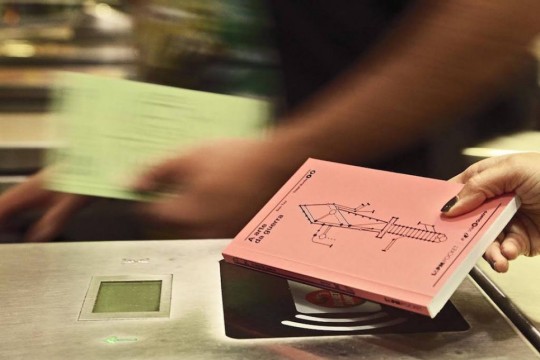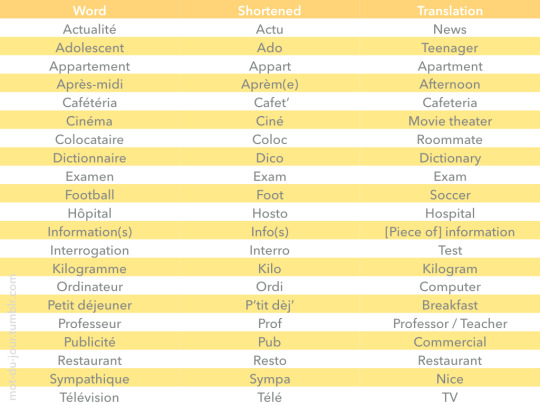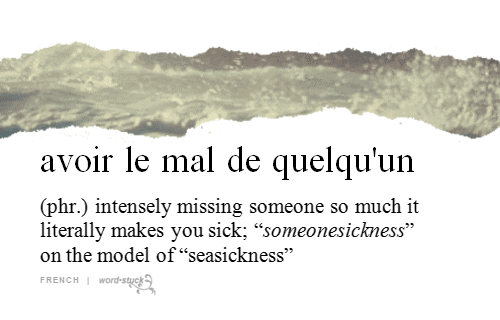My name's Jamie and I like languages, linguistics and literature. I'm an au pair in Paris so I'm not super active on here lately - but I still occasionally post linguistics, languages (mostly French and Chinese, some German), and some animal rights stuff. Feel free to message me about anything!!
Don't wanna be here? Send us removal request.
Text
(more) random french phrases and expressions i’ve picked up from marathoning french tv shows all night
continuation of this post
tu veux parier ? = wanna bet?
moi, c'est [nom] = i’m [name]
tout aussi bien = just as well / just as good
se mettre en colère = to get angry
qu'est-ce qui t'arrive ? = what’s the matter ?
faire l'affaire = to do the trick / to fit the purpose
bien joué = well played
en quoi puis-je vous être utile ? = how may i help you? / what can i do for you?
c'est à moi = it’s mine
trou perdu = middle of nowhere
je regrette = i am sorry / i regret
en vrai = for real
mes gamins = my kids
on se débrouillera = we’ll manage / we’ll take care of things
3K notes
·
View notes
Link
Ben Zimmer has an interesting post on Language Log about the middle voice as used on Top Chef in the phrase “it eats salty”:
At the risk of grammarsplaining further, I think Daniel Tse was correct to identify this as an example of “middle voice” (also called “mediopassive voice”), as in “The meat cuts easily” or “The book sells well.” Mark Liberman discussed such constructions in a 2006 Language Log post: “Diagnosing soup label syntax.” As it happens, the example under discussion in the post also involved the verb eat: the Campbell’s Chunky Soup slogan, “The soup that eats like a meal.”
The middle voice is one of my favourite syntactic phenomena, partly because it’s an obscure third sibling to the much-discussed active and passive voices, but mostly because it’s the kind of thing that once you learn to identify, you’ll spend about a month noticing it everywhere.
(And with that, note that Wikipedia has separate articles for active voice and passive voice, but middle only has a dense two paragraphs under the main “voice” article.)
312 notes
·
View notes
Text
Some French homophones
l’amande ‘almond’ : l’amende ‘fine’ (in a legal sense)
l’auteur ‘author’ : la hauteur ‘height’
la boue ‘mud’ : le bout ‘end; tip’
cent ‘one hundred’ : le sang ‘blood’ : sans ‘without’
cette ‘this’ (feminine) : sept ‘seven’
la chair ‘flesh’ : cher, chère ‘dear; expensive’
chaud ‘hot’ : la chaux ‘lime’ (material)
le chœur ‘chorus’ : le cœur ‘heart’
le compte ‘account’ : le comte ‘count’ (royalty) : le conte ‘story’
le cou ‘neck’ : le coup ‘blow’ (i.e. to the head) : le coût ‘cost’
la cour ‘yard’ : le cours ‘course’ : court ‘short’
le cygne ‘swan’ : le signe ‘sign’
dans ‘in’ : la dent ‘tooth’
la faim ‘hunger’ : la fin ‘end’
le fait ‘fact’ : le faîte ‘summit’ : la fête ‘party’
faire ‘to do; to make’ : le fer ‘iron’
la foi ‘faith’ : le foie ‘liver’ : la fois ‘time’ (as in une fois ‘once’)
frais ‘fresh’ : les frais ‘fees’
le gène ‘gene’ : la gêne ‘embarrassment’
la livre ‘pound’ (measurement) : le livre ‘book’
le maire ‘mayor’ : la mer ‘sea’ : la mère ‘mother’
le maître ‘master’ : le mètre ‘meter’
les maux ‘evils’ : le mot ‘word’
le mur ‘wall’ : mûr ‘ripe’ : la mûre ‘blackberry’
le nom ‘name’ : non ‘no’
pair ‘even’ (as in a number) : la paire ‘pair’ : le père ‘father’
par ‘by; per’ : la part ‘part’
le pieu ‘stake’ : pieux ‘pious’
le poids ‘weight’ : le pois ‘pea’ : la poix ‘tar pitch’
le pou ‘louse’ : le pouls ‘pulse’
pris ‘taken’ : le prix ‘price; prize’
la roue ‘wheel’ : roux ‘red-haired’
sain ‘healthy’ : saint ‘holy’ : le sein ‘breast’
la scie ‘saw’ : si ‘if’
le sou ‘cent’ : soûl ‘drunk’ : sous ‘under’
sur ‘on; about’ : sûr ‘sure; safe’
le taux ‘rate’ : tôt ‘early’
la tribu ‘tribe’ : le tribut ‘tribute’
vain ‘vain’ : le vin ‘wine’
la voie ‘way; lane’ : la voix ‘voice’
1K notes
·
View notes
Text
Little fact about French because I just learned that
The accent circonflexe (^) exists in French words to replace the “s” that no longer exists but used to be there in older French.
For example: fenêtre used to be fenestre
It is still possible to see the “s” at times in family words like “défenestrer”.
39K notes
·
View notes
Text
Casual French
Bonjour!
Here are some words that you wouldn’t learn in the classroom:
Bouffer/La bouffe - to eat/food
J’ai bouffé tout la bouffe que j’ai eu. -> I ate all the food I had.
EDR - LOL (literally means écroulé de rire)
Ma mère pense que je suis parfait. EDR. -> My mom thinks I’m perfect. LOL.
D’acc - Ok. (Shorthand for D’accord. Mostly used in text)
Viens chez moi pour le déjeuner, d’acc? -> Come to my house for lunch, ok?
La vache/Oh mon dieu - Oh my god.
“J’ai entendu que Therèse est morte.”
“la vache!” ->
“I heard that Theresa died.”
“Oh my god!”
Comme çi comme ça -> So so (A response for “How are you”) …. I wanted to specifically point this one out. This phrase is in every text book I have ever seen but it is so rarely used. Please do not use this especially in a familiar setting.
Vachement - really/freaking
Je veux vachement un petit-ami. -> I really want a boyfriend.
With all of these phrases it’s important to note that these are not for formal settings. Friends and people like friends are good to use these with.
I could have included more but there are so many that I’ll leave this for now. I’ll post another slang one soon.
À bientôt!
740 notes
·
View notes
Text
avoir beau
I remember being confused about this idiomatic expression when I first encountered it, but it’s actually pretty useful once you understand it.
Avoir beau, followed by an infinitive verb, means ‘however + [verb]’ or ‘whatever + [pronoun/noun] + [verb].’ There’s a sense of doing something in vain to no effect.
Some examples:
J'ai beau essayer = try as I may
On a beau faire = whatever you do, no matter what one does
Avoir beau étudier = to study in vain
828 notes
·
View notes
Text
How do people respond to sneezing?
Well, it depends where you are from. Here are a few responses from around the world:
“May God forgive you!” (Amharic)
“Rice and salt.” (Vietnamese, if the sneezer is a child)
“Hey! I took a bath!” (Filipino. The correct response is “Who didn’t take a bath?”)
“Have a long life.” (Sinhala in Sri Lanka)
“You have released nose-water.” (Ritharngu, an Australian aboriginal language. Their response is extremely literal.)
“Patience” (Pashto)
“It’s the Truth” (Marathi)
“God help you!” to first sneeze, “strengthen you” to second sneeze, “and support.” to third sneeze. Can be shortened to “Bless you.” (Icelandic)
What do you say?
5K notes
·
View notes
Text
STFU in German
There a several ways of telling a person to “shut the fuck up” in German. Here are some frequently used expressions and keep in mind that saying something like that is rude:
Ruhe! (silence!)
Schnauze! (muzzle!/snout!)
Halt den Mund! (Shut your mouth!)
Halt’s Maul! (“Maul” means an animal’s mouth, but in this case it’s pejorative for a person’s mouth.) (rude!)
Halt die Fresse! (this one’s very vulgar!)
But how do you say it politely?
when someone is being noisy:
K��nntest du bitte leiser sein? (inf) Könnten Sie bitte leiser sein? (f) = Literally: Could you please be more quiet?
when someone is talking shit:
Sag so etwas (bitte) nicht! (inf) Sagen Sie so etwas bitte nicht! (f) = Please don’t say that.
2K notes
·
View notes
Text
It’s super fuckin cold at the moment
In French you could say il fait un froid de canard - it’s duck cold
In Italian you could say fa un freddo cane - it’s dog cold
In English my dad used to say “it’s cold enough to freeze the balls off a brass monkey”
Any other languages have animal idioms for cold?
575 notes
·
View notes
Note
salut! my biggest problem is speaking in French because my teacher has an horrible accent ... is there anyway I can help improve my speaking and don't have a weird and horrible accent?
Coucou! Thanks for your message.
Speaking is often the trickiest part of learning any foreign language, so that comes as no surprise to me, because I am the same, and I know most other language learners out there have the same difficulties. Regardless of how long you learn French or how long you live in a French-speaking country, you will always have an accent ;)! Just like the same goes for those who learn English as a second language.
It is indeed a shame that your teacher doesn’t have a nice accent! Having a native speaker as a teacher is a huge advantage as you can learn to imitate their pronunciation (and you don’t have to cringe every time they open their mouth :P). Ultimately, the best way to improve your speaking is by putting yourself in an environment where you are forced to speak French every day - immersion! Sadly, this isn’t easy for a lot of us, as it usually requires travel…however, there are some easier things to do, which, if repeated regularly, will see your accent improving a lot over time.
1. Watch TV programs, series, movies and the news in French. These are easily accessible online. A simple Google.fr search will set you in the right direction, but also be sure to check out the posts I’ve made here (I have lists of French movies, links to series dubbed in French, French Youtubers etc.). At first expect to not understand much at all, and be prepared to be frustrated, or feel like there is no point. Progress will come slowly and training your ear takes time, so be patient! Even just putting on a show in the background while you do other things is a great idea. Make sure you do this regularly, and maybe start with movies with subtitles too or easier sources like News in Slow French. It’s also a good idea to start with movies or shows you’ve seen before in English, and watch them dubbed in French, to make it easier to follow.
2. Read aloud. You should aim to be reading in French as often as possible; a magazine, a children’s book, a newspaper, a website, a novel, the choice is yours! Even if you don’t understand every word, reading aloud and trying to pronounce news word you come across will help immensely. Look up the pronunciation online if you’re really not sure; try Forvo.com to hear how words sound pronounced by French natives. Aim to increase your pace bit by bit and make sure sentences are flowing naturally off your tongue. Don’t be afraid to stumble and read the same phrase over and over. Practice makes perfect!
Those are my top 2 ways to improve your speaking and pronunciation and they work for any language you will ever learn! The key is regular practice so aim to make them part of your day, even if it’s just putting aside 10 minutes for reading aloud, and half of Gossip Girl in French every night. I hope this helps! Bon courage :)
152 notes
·
View notes
Text
Mongolian is an Amazing Language
There is one word in Mongolian that I think is the most amazing:
Dandaa дандаa, which translates to “Always” but only for things that are annoying.
So, for example you could not use dandaa for “It’s always sunny in Philadelphia”
but you could use it for “It’s always rainy in Seattle.”
Or:
You could not use it for “My friend is always cheerful”
but you could use it for “Donald trump is always a racist, hateful, bag of shit.”
It’s a really great word.
883 notes
·
View notes
Text
Ways to cook
炒 (chǎo)-to stir fry in a Chinese wok
煎 (jiān)-to fry with a small amount of oil
烧 (shāo)-to braise
蒸 (zhēng)-to steam
烤 (kǎo)-to bake
炖 (dùn)-to stew
煮 (zhǔ)-to boil in water
炸 (zhà)-to deep fry in oil
红烧 (hóngshāo)-fry with a red or brown sauce
白煮 (báizhǔ)-boil without adding any flavors
清炒 (qīngchǎo)-stir fry without adding any flavors
清蒸 (qīngzhēng)-steam without adding any flavors
辣炒 (lǎchǎo)-stir fry with hot peppers
爆炒 (bàochǎo)-to use boiling oil or water to quickly stir fry
Afficher davantage
358 notes
·
View notes
Quote
beratungsresistent
adjective. literal translation: “counseling-resistent”
meaning: someone who never listens to other people’s advice
(via weirdgermanwords)
172 notes
·
View notes
Text
Books in Brazil can be used to ride the Subway for free

One of the largest publishers in Brazil is expanding their Ticket Books program, where books can be used to ride the subway for free. Each title has an RFID card embedded in the back cover that comes loaded with enough credit for 10 rides, which means that reader can simply scan their books at the turnstyle just like a normal subway pass. When the book runs out of trips, it can be recharged online.
The Ticket Books collection included ten titles: Peanuts: Friendship. That’s What Friends Are For by Charles M. Schulz, Garfield: Sorry by Jim Davis, Hundred Love Sonnets by Pablo Neruda, The Great Gatsby by F. Scott Fitzgerald, The Art of War by Sun Tzu, Sherlock Holmes: The Hound of Baskerville by Sir Arthur Conan Doyle, Hamlet by William Shakespeare, Murder Alley by Agatha Christie, Chives In Trouble! by Mauricio de Sousa, and Quintana Pocket by Mario Quintana. The books also featured cover art inspired by subway maps.
2K notes
·
View notes
Quote
La langue est la porte par laquelle on entre dans l’âme d’une personne.
Translation: “Language is the door through which one enters into the soul of a person.” - Evelyne Brochu (via supahdupah)
675 notes
·
View notes
Photo

Hey guys, so today I decided to give you a list of words that French people like to shorten. (And by “like to” I mean “always”)
This is based on the words I use and hear in my everyday life.
Keep in mind that these shortened words are used in the oral language only.
3K notes
·
View notes
